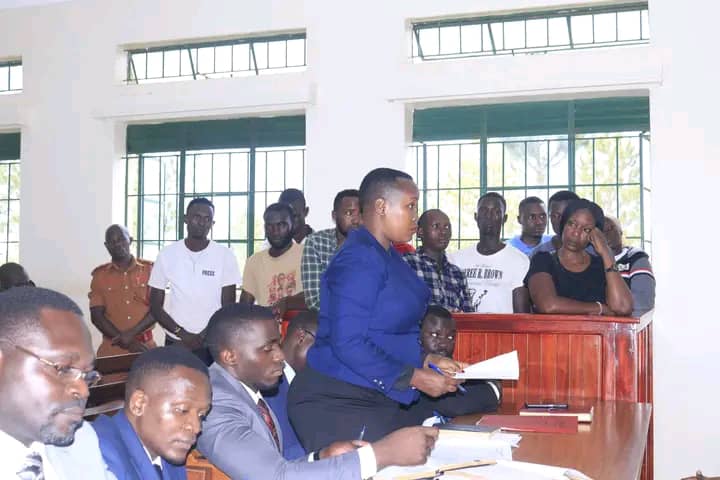Human Rights
13 Activists Face Court in Kamuli on Charges of Inciting Violence

In a dramatic turn of events that underscores the ongoing struggle for political and civil rights in Uganda, thirteen activists were produced in Kamuli Court today, facing charges of inciting violence and disobedience of lawful orders. The courtroom was charged with tension as the state attorney requested additional time to verify the documents provided by the sureties for the bail application. The activists, known for their outspoken criticism of the government and their dedication to social justice, will return to court on May 27, 2024, to continue their fight for freedom.
The Charges: The activists, who include Sarah Mukisa Muwonge, James Mukama, Peter Kissa, Ivan Wamende, Ngobi Emmanuel, Malagala Jacob, Rahma Juma, Ssengendo Shafik (also known as Shafi Adams), Amanya Holliness Collins, Sempijja Vicent, Wasswa Paddy, Julius Balubinze, and Wayibi Rashid (popularly known as BOBI Rash), are facing two counts: inciting violence and disobedience of lawful orders. These charges stem from their participation in a series of protests and public demonstrations that have called for greater political freedoms, accountability, and an end to human rights abuses.
Today’s proceedings began with a somber atmosphere as the accused were brought into the courtroom. Their supporters, family members, and human rights advocates filled the gallery, demonstrating solidarity and calling for their immediate release. The defense team presented a robust bail application, arguing that the activists pose no flight risk and that their continued detention is a violation of their basic human rights.
However, the state attorney countered by requesting additional time to verify the documents submitted by the sureties. This move, seen by many as a deliberate tactic to prolong the activists’ detention, was met with disappointment and frustration from the defense and supporters alike. The judge granted the state attorney’s request, setting the next court date for May 27, 2024.
The thirteen activists have long been at the forefront of the struggle for democracy and human rights in Uganda. Sarah Mukisa Muwonge, a well-known community organizer, has been instrumental in mobilizing grassroots support for political reforms. James Mukama and Peter Kissa, both vocal critics of the government’s policies, have faced previous arrests for their activism. Ivan Wamende and Ngobi Emmanuel have been advocates for youth empowerment and have led several campaigns aimed at ending unemployment and social injustice.
Malagala Jacob and Rahma Juma have been champions for women’s rights, often highlighting the plight of women in rural areas. Ssengendo Shafik, also known as Shafi Adams, is a popular musician whose songs speak out against corruption and oppression. Amanya Holliness Collins and Sempijja Vicent are known for their efforts in environmental conservation and land rights, while Wasswa Paddy and Julius Balubinze have been active in promoting freedom of speech and expression. Wayibi Rashid, or BOBI Rash, is a prominent figure in the youth movement, using his platform to advocate for change and inspire the younger generation.
The detention and trial of these activists have drawn widespread condemnation from both local and international human rights organizations. Amnesty International and Human Rights Watch have issued statements calling for their immediate release and an end to the government’s crackdown on dissent. The case has also garnered significant media attention, highlighting the broader issues of political repression and human rights abuses in Uganda.
Supporters of the activists have vowed to continue their fight, organizing rallies and social media campaigns to raise awareness and pressure the authorities to drop the charges. They argue that the charges are politically motivated and aim to silence those who dare to speak out against the government.
As the thirteen activists prepare to return to court on May 27, 2024, their case serves as a stark reminder of the challenges faced by those who stand up for justice and human rights in Uganda. The outcome of this case will not only determine the fate of these individuals but also signal the direction of Uganda’s political landscape in the coming years. For now, their supporters remain hopeful and resolute, ready to continue the struggle for a more just and democratic society.
